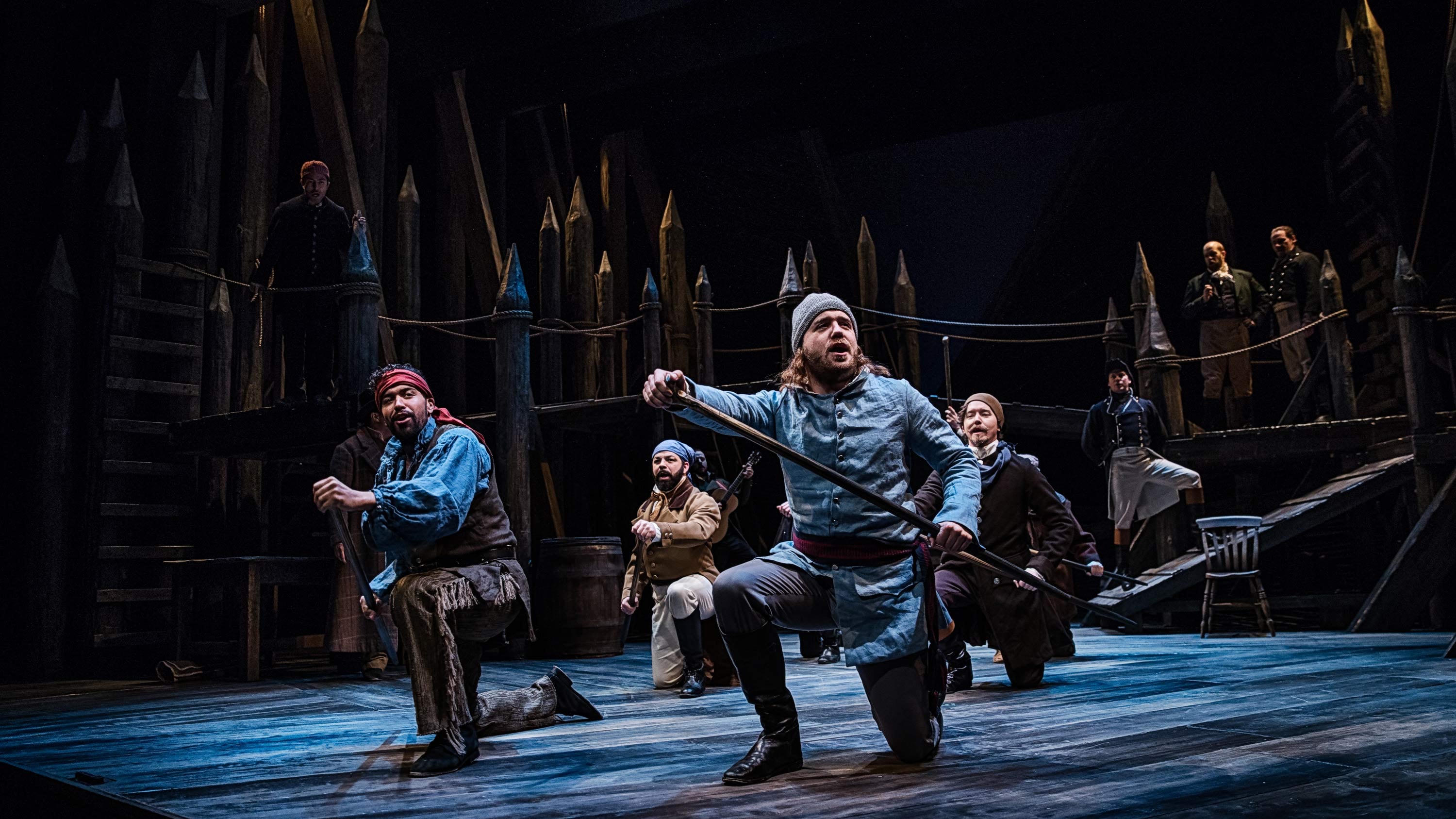While the captain of the Tonquin, Jonathan Thorn, is throwing unconscious men overboard, Wilson Price Hunt is determining routes through unmapped territory by polling his expedition.
Based on Peter Stark's critically acclaimed book about John Jacob Astor's attempt to create a fur trading empire in the Pacific Northwest before there were any permanent settlements on the West Coast, Astoria is a two-part play (part two premieres next season). The first part focuses on the two expeditions to establish the trading empire: the ocean voyage led by Thorn (Ben Rosenblatt) and the overland journey led by Hunt (Shawn Fagan), a businessman-turned-reluctant explorer.
Full of period-piece peril, the two voyages set up a polar picture of masculinity and leadership: Thorn is the stern-faced, totalitarian captain, and changing his mind requires holding a gun to his head. Hunt, on the other hand, is indecisive and insecure, and constantly wonders aloud if he's capable of leading the expedition. (Meanwhile, Astor—played by Leif Norby as an almost mousy, behind-the-scenes dreamer—plans the adventure from his home in New York and appears in only a few scenes.)
The array of supporting actors depict the expanding nation's cultural tensions. There's the Scottish Canadian men on Thorn's ship who take issue with his ruthless command. There's Harry (Christopher Salazar) and Peter (Shaun Taylor-Corbett), two Hawaiian men who rescue a fellow crew member from freezing water with their teeth when their hands are too numb from the cold. On Hunt's expedition, there is half-Ioway, half-French Canadian Marie Dorion (Delanna Studi), who does everything the men on the expedition do but while pregnant, carrying a baby on her back, and with more composure.
But theirs is a quiet bravery that takes a backseat to the brash ambitions of the white American men in charge of the expeditions. There's plenty of unspoken irony in the lines about being farther west than "other white men," but Astoria is more interested in examining power structures as they were than in rewriting them: It's a subtle but intricate portrait of the era of westward expansion.
SEE IT: Astoria plays at the Armory, 128 NW 11th Ave., pcs.org. 7:30 pm Tuesday-Sunday, noon Thursday, 2 pm Saturday-Sunday, through Feb. 19 (sold out after Feb. 12). No 7:30 pm show Sunday, Jan. 29 and Feb 12. No 2 pm show Saturday, Feb. 4. No noon show Thursday, Feb. 9. $25-$75.

